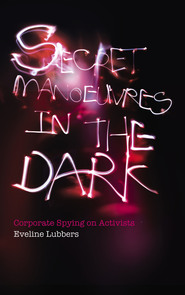Widening state surveillance of the web and stories about corporate phone hacking have made journalists increasingly concerned about the security of their communications. In this context Eveline Lubbers‘ book on corporate and police surveillance, Secret Manoeuvres in the Dark, is particularly timely.
The book focuses on a number of well-researched cases from the past two decades involving subterfuge by private companies and police – sometimes in collaboration with each other.
Each case provides key insights into the methods used to gather information on campaigners, activists and researchers, and to use that in strategies against them – but it also details strategies to mislead journalists and influence publishers.
It is in these latter cases that the book proves particularly valuable to journalists wishing to know the right questions to ask to avoid being ‘spun’. Continue reading





